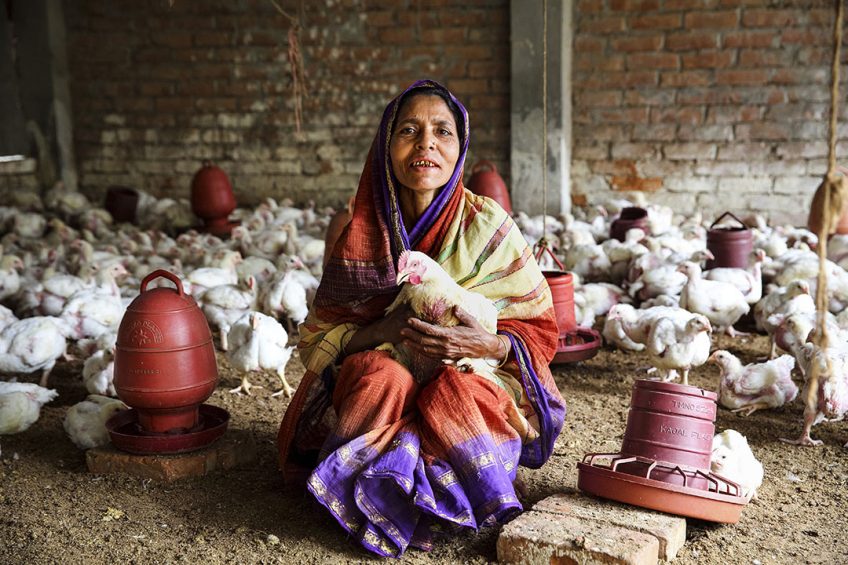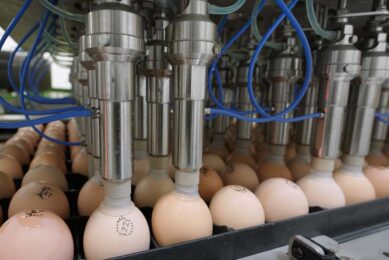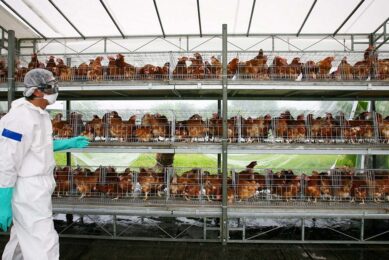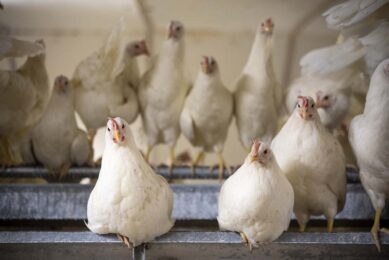Covid-19 disrupts Bangladesh’s poultry sector

The Bangladesh Poultry Industries Central Council (BPICC) expects the supply and demand mismatch for poultry to continue for the remainder of 2020.
The BPICC saw a huge discrepancy in the early days of the Covid-19 pandemic with a 12-year low in prices which has so far only partly recovered. The current situation is seriously undermining the livelihoods of Bangladesh’s millions of backyard poultry farmers and small traders.
More than 6 million people in Bangladesh are either directly or indirectly involved in poultry production. The commercial sector has expanded rapidly with commercial poultry farms growing at a rate of 15% a year, providing a significant pathway for the country’s economic development and an increasingly important means of providing its people with nutrition. Poultry farming has also long provided a well-trodden path out of poverty for many.
Researchers at the One Health Poultry Hub Bangladesh work closely with chicken farmers and wanted to find out to what extent the sector has been affected by the Covid-19 crisis. The main focus was on how the pandemic and control measures were affecting the production, distribution and consumption of chickens and eggs. A group of 36 chicken farmers, traders, feed, medicine and chick suppliers, and others involved in Bangladesh’s chicken production and distribution network were interviewed between early April and early May 2020. The research findings illustrate the very serious impact that Covid-19 has had on this important and growing sector.
 Covid-19: Impact on the global poultry sector
Covid-19: Impact on the global poultry sector
The coronavirus has had a huge impact on daily life from the man on the street to businesses. And the poultry sector, even more essential than ever, has not gone unscathed. Keep up-to-date.
Damaging rumours about livestock transmission
In Bangladesh, the first human case of SARS coronavirus-2 was detected on 8 March. By the time lockdown was announced on 26 March there were 39 reported cases. To prevent human-to-human transmission, preventive measures were quickly introduced, including social distancing and controls on people’s movements, the closure of food outlets, factories and markets, and the reduction of domestic and international transport.
Rumours, particularly on social media, that the SARS coronavirus could be transmitted to people through livestock and livestock products, combined with the new lockdown measures, caused serious damage in the country’s various poultry production and distribution networks. For example, poultry farmers stopped receiving necessary supplies, such as day-old chicks, poultry feed, vaccines and medicines, and the lack of consumer demand – caused by fears based on the unfounded rumours as well as people’s reduced incomes and their inability to access markets – meant they could no longer sell their market-ready birds at the desired prices. One medium-sized broiler farmer we interviewed said: “Never in the last 10 years have I ever experienced this kind of critical situation. I cannot sell mature broilers to middlemen, even at BDT80-90/kg (US$ 0.95-1.06) while my production cost is more than BDT100/kg (US$ 1.20).”
 Coronavirus is more persistent than other SARS viruses
Coronavirus is more persistent than other SARS viruses
The Food Technology Institute from Brazil looked into the survival rates of 3 types of coronavirus on surfaces like packages or food.
Farmers suffer economic losses
Farmers have suffered serious economic losses as a result. Preliminary research findings show that by the end of April approximately 70% of small to medium-sized broiler farms had temporarily stopped farming and trading. Although by June, half of these farms had restocked with day-old chicks, albeit on a smaller scale due to the uncertainty surrounding the likelihood of further losses.
The plight of farmers in turn significantly affected the business of poultry traders, large poultry companies, poultry feed companies and pharmaceutical companies. A follow-up study in June showed there had been a 30-45% reduction in day-old chick production, a 35-40% reduction in poultry feed production and a 40-50% reduction in the sale of medicines and other pharmaceutical products. In April one hatchery manager told the researchers: “The market price of day-old chicks has dropped below the production cost. Now, the selling price for day-old chicks is BDT4-5 (US$ 0.047-0.05), while it was around 35BDT (US$ 0.4) before Covid-19. Our production cost is around BDT30-32 (US$ 0.36-0.38). So, we had to reduce day-old chick production from 13 million a week to 7.5-8 million.”
 Interview: FVE president: “One Health approach is essential”
Interview: FVE president: “One Health approach is essential”
Dutch veterinarian Rens van Dobbenburgh has been president of the Federation of Veterinarians of Europe (FVE) since June 2019.
Price fluctuations for poultrymeat and eggs a constraining factor
Since the pandemic, farm eggs have been selling at up to BDT4-5.5 (US$ 0.046-0.065) each at farm level in Bangladesh, against production costs of at least BDT6 (US$ 0.07). The average price of a farm egg was BDT7-8 (US$ 0.08-0.09) before the pandemic. The production cost per kilo of broiler meat was BDT95-100 (US$ 1.17-1.18) while post-pandemic farmers had to sell wholesale for only BDT65-70 (US$ 0.77-0.80). Farmers who run their farms by taking credit from the feed dealers have fallen deeper into debt.
Local newspapers have reported that prices of both chicken eggs and meat hit a 12-year low in April. The Bangladesh Poultry Industries Central Council (BPICC) is expecting the supply and demand mismatch for poultry to continue for a minimum of 6 months.
In the 2nd week of May, the price of poultrymeat and eggs increased as a result of supply disruptions and demand for the Eid al-Fitr (one of the biggest Muslim festivals) and, according to the state-run Trading Corporation of Bangladesh (TCB), chicken broiler prices increased by an average of 45% in the 4 days between 20-23 May as Bangladeshi poultry producers had stopped production in March and April due to low demand. All of which had worsened the situation. Such rapid price fluctuations for poultrymeat and eggs are making it increasingly difficult for farmers and traders to cope with the crisis.
 Poultry bones turned into green fuel
Poultry bones turned into green fuel
Brazilian researchers are looking into the possibility to turn poultry bone waste into a green biodiesel via hydrogenation.
Livelihoods of backyard poultry farmers and small traders threatened
The current situation is seriously undermining the livelihoods of Bangladesh’s millions of backyard poultry farmers and small traders. About 90% of rural Bangladeshi households keep poultry, the practice being recognised as a major route out of poverty, particularly for poor, landless women. In April, BPICC anticipated that with no improvement in the Covid-19 situation, more than 2 million people in the poultry industry would become unemployed in the next couple of months.
The Bangladesh government has acted to support the country’s farmers with measures during the period of the pandemic, including support from the Department of Livestock Services (DLS) and the Ministry of Livestock and Fisheries (MoLF) for the distribution and marketing of eggs and poultry, along with MoLF support for the early release of imported poultry feed materials and pharmaceutical products from the docks. The government has also announced a stimulus package of Tk5,000 crore (US$ 595 million) to provide financial assistance to small and medium-sized farmers in rural areas to boost agricultural production further to the fallout caused by Covid-19.
However, government support alone will not be enough to repair the damage suffered by farmers, while there are also complexities linked to the implementation of the stimulus package. A simple but efficient way for farmers to benefit from the package needs to be put in place. Large poultry companies and UN organisations should also come forward. There are no quick solutions to the challenges faced by the poultry sector in Bangladesh during the Covid-19 pandemic. The One Health Poultry Hub Bangladesh believes that what the sector now needs is a short, medium and long-term plan to tackle the crisis.
Author: Dr Rashed Mahmud, One Health Poultry Hub Bangladesh













